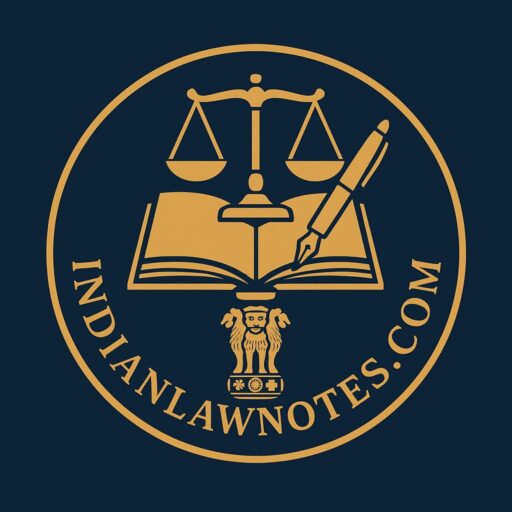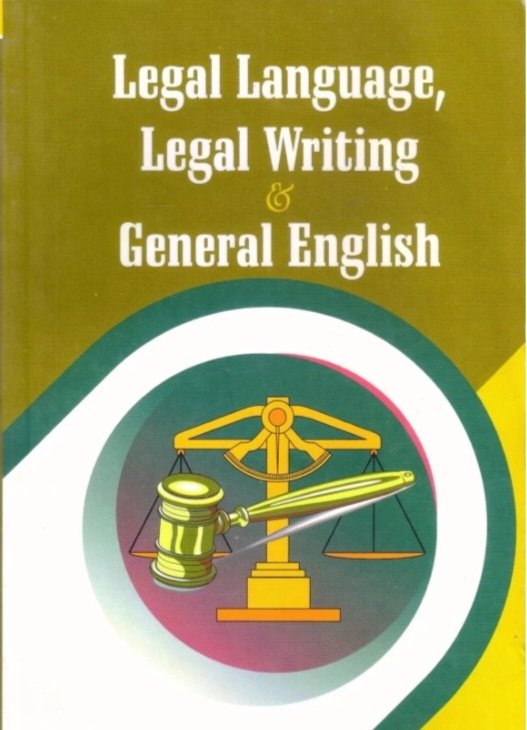यहाँ सामान्य अंग्रेजी और विधिक भाषा (General English and Legal Language) से जुड़े 100 महत्वपूर्ण प्रश्न और उत्तर दिए गए हैं।
भाग 1: सामान्य अंग्रेजी (General English)
शब्दावली (Vocabulary)
- Synonym of “Abundant” – Plentiful
- Antonym of “Benevolent” – Malevolent
- Synonym of “Precise” – Exact
- Antonym of “Vague” – Clear
- Meaning of “Extempore” – Without preparation
व्याकरण (Grammar)
- Identify the verb in: “She writes a letter.” – Writes
- Choose the correct preposition: “He is interested ___ music.” – In
- Identify the adjective: “He is an honest man.” – Honest
- Convert into passive voice: “She completed the project.” – The project was completed by her.
- Change into indirect speech: He said, “I am going to the market.” – He said that he was going to the market.
रिक्त स्थान भरें (Fill in the Blanks)
- He was born ___ a rich family. – Into
- She is good ___ playing chess. – At
- They arrived ___ the station late. – At
- He is afraid ___ the dark. – Of
- I am looking forward ___ meeting you. – To
पर्यायवाची और विलोम शब्द (Synonyms & Antonyms)
- Synonym of “Prohibit” – Forbid
- Antonym of “Courageous” – Cowardly
- Synonym of “Justify” – Defend
- Antonym of “Optimistic” – Pessimistic
- Synonym of “Conceal” – Hide
भाग 2: विधिक भाषा (Legal Language)
महत्वपूर्ण विधिक शब्दावली (Important Legal Terminology)
- Plaintiff – वादी
- Defendant – प्रतिवादी
- Jurisdiction – अधिकार क्षेत्र
- Affidavit – शपथ पत्र
- Summons – समन
विधिक वाक्यांश (Legal Phrases)
- “Habeas Corpus” means – Produce the body before the court
- “Res Judicata” means – The matter has been adjudicated
- “Mens Rea” means – Guilty mind
- “Actus Reus” means – Guilty act
- “Prima Facie” means – At first sight
विधिक अधिकार (Legal Rights)
- What is the Right to Equality? – Every individual is equal before the law.
- What is the Right to Information (RTI)? – Citizens can request information from the government.
- What is the Right to Constitutional Remedies? – Right to approach the Supreme Court for rights violations.
- What is the doctrine of “Separation of Powers”? – Division of government into Executive, Legislative, and Judiciary.
- What is the principle of “Natural Justice”? – Fairness in legal proceedings.
भारतीय विधिक प्रणाली (Indian Legal System)
- Who is the head of the Indian Judiciary? – Chief Justice of India
- Which is the highest court in India? – Supreme Court of India
- Which article of the Constitution deals with Fundamental Rights? – Articles 12-35
- What is the full form of PIL? – Public Interest Litigation
- Which law deals with crimes in India? – Indian Penal Code (IPC)
महत्वपूर्ण अधिनियम (Important Acts)
- Indian Penal Code (IPC) was enacted in which year? – 1860
- What is the full form of CrPC? – Criminal Procedure Code
- Which act deals with contracts in India? – Indian Contract Act, 1872
- Which act governs companies in India? – Companies Act, 2013
- What does the Consumer Protection Act deal with? – Protection of consumer rights
न्यायिक शब्दावली (Judicial Vocabulary)
- Bail – जमानत
- FIR – प्रथम सूचना रिपोर्ट
- Conviction – दोषसिद्धि
- Acquittal – दोषमुक्ति
- Cross-examination – जिरह
भाग 3: मिश्रित प्रश्न (Mixed Questions)
- What is “Stare Decisis”? – Principle of precedent
- Who is the current Chief Justice of India? – (Check latest update)
- What is the doctrine of “Ejusdem Generis”? – General words take meaning from specific ones.
- What is “Obiter Dicta”? – Judges’ remarks that are not binding.
- What is “Ratio Decidendi”? – Legal reasoning of a judgment.
भाग 4: अन्य महत्वपूर्ण प्रश्न
विधिक व्यवस्था (Legal System)
- What is the purpose of ADR? – Alternative Dispute Resolution to settle disputes outside courts.
- What is Lok Adalat? – People’s court for quick dispute resolution.
- Which body recommends judicial appointments? – Collegium System.
- What is “Doctrine of Basic Structure”? – Certain features of the Constitution cannot be amended.
- Which law governs cyber crimes in India? – Information Technology Act, 2000.
संविधान से संबंधित प्रश्न (Constitutional Questions)
- Who is the father of the Indian Constitution? – Dr. B.R. Ambedkar
- Which part of the Constitution deals with Fundamental Duties? – Part IV-A
- What is Article 21 about? – Right to Life and Personal Liberty
- Which amendment is known as the Mini Constitution? – 42nd Amendment
- What is the Preamble? – Introduction to the Indian Constitution.
भाग 5: विधिक भाषा और विधिक प्रणाली (Legal Language and Legal System)
संविधान और विधिक सिद्धांत (Constitution and Legal Principles)
- Which part of the Constitution deals with Directive Principles of State Policy (DPSP)? – Part IV
- What is Article 32 about? – Right to Constitutional Remedies
- Which article prohibits discrimination on grounds of religion, race, caste, sex, or place of birth? – Article 15
- What is Article 19 about? – Freedom of speech, expression, assembly, etc.
- Which article of the Constitution provides special status to Jammu and Kashmir (now abrogated)? – Article 370
विधिक प्रणाली और न्यायालय (Legal System & Judiciary)
- What is the maximum number of judges in the Supreme Court of India? – 34 (including Chief Justice)
- Which High Court has jurisdiction over multiple states? – Guwahati High Court (Assam, Nagaland, Mizoram, Arunachal Pradesh)
- What is the tenure of a Supreme Court judge? – Till the age of 65 years
- Who appoints the judges of the Supreme Court and High Courts? – President of India
- What is the full form of NCRB? – National Crime Records Bureau
महत्वपूर्ण विधिक सिद्धांत (Important Legal Doctrines)
- What is the doctrine of “Pith and Substance”? – Determines legislative competency of a law
- What is “Locus Standi”? – Right to bring a case to court
- What is “Ultra Vires”? – Beyond the legal power of an authority
- What is “Vicarious Liability”? – Liability for someone else’s actions
- What is “Caveat Emptor”? – Let the buyer beware
दंड संहिता और प्रक्रिया संहिता (IPC & CrPC)
- What is the punishment for murder under IPC? – Section 302 (Death or Life Imprisonment)
- What does Section 144 CrPC deal with? – Prohibition of unlawful assembly
- What is the minimum age of criminal responsibility in India? – 7 years (IPC Section 82)
- Under which section of CrPC can police arrest without a warrant? – Section 41
- What is the maximum period of police custody before a person must be presented before a magistrate? – 24 hours (Article 22 of the Constitution)
नागरिक कानून (Civil Law)
- Which law deals with marriage, divorce, and succession among Hindus? – Hindu Marriage Act, 1955
- Which act governs Muslim personal laws? – Muslim Personal Law (Shariat) Application Act, 1937
- Which act regulates the transfer of property? – Transfer of Property Act, 1882
- What is “Specific Performance”? – Court order to fulfill a contractual obligation
- Under which act is a cheque bounce case filed? – Negotiable Instruments Act, 1881 (Section 138)
महिला और बाल अधिकार (Women & Child Rights)
- Which act protects women from domestic violence? – Protection of Women from Domestic Violence Act, 2005
- Which act prohibits child marriage? – Prohibition of Child Marriage Act, 2006
- What is the legal age of marriage in India for girls? – 18 years
- Which act deals with sexual harassment at the workplace? – POSH Act, 2013
- Which law provides free and compulsory education to children? – Right to Education Act, 2009
अन्य महत्वपूर्ण विधिक प्रश्न (Miscellaneous Legal Questions)
- Which law governs environmental protection in India? – Environment Protection Act, 1986
- Which act regulates information technology and cyber crimes? – IT Act, 2000
- Which law protects the rights of consumers? – Consumer Protection Act, 2019
- What does RTI stand for? – Right to Information
- What is the legal remedy if a person is illegally detained? – Habeas Corpus Writ

